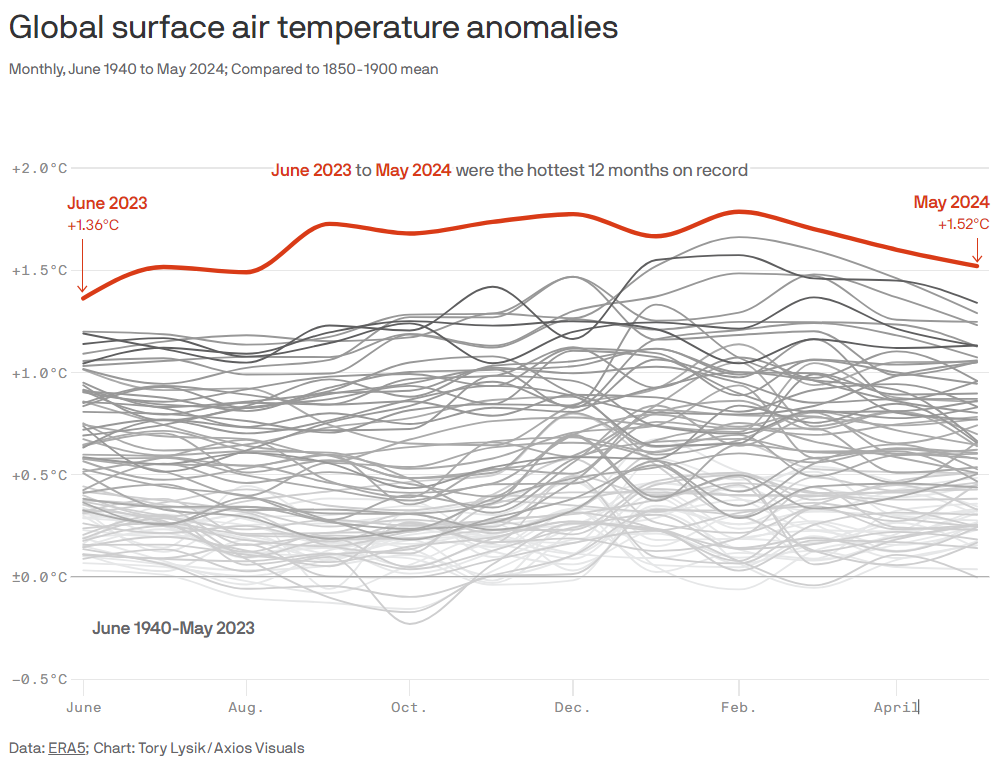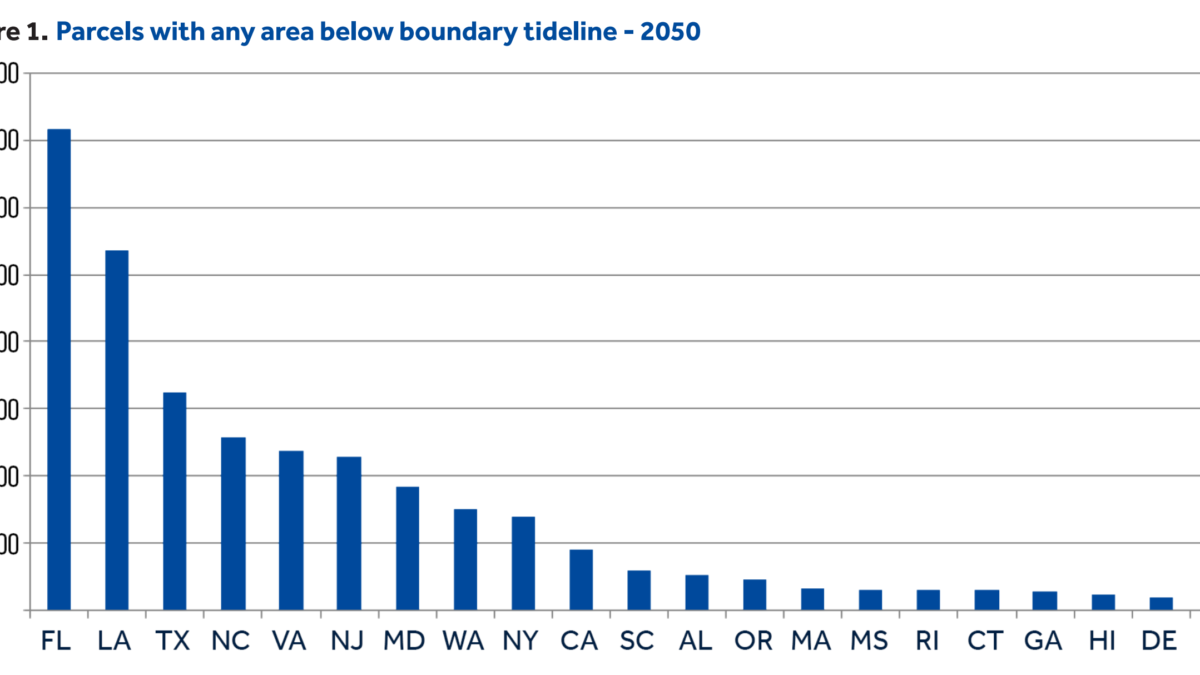Global heat record broken for 12th straight month in May 2024

By Andrew Freedman
5 June 2024
(Axios) – May 2024 was the 12th consecutive month to set a monthly global average temperature record, and exceed a key Paris Agreement temperature target.
Why it matters: The new data comes amid a slew of findings from climate monitoring groups released Wednesday, timed to coincide with a speech in New York by U.N. Secretary-General António Guterres.
- This is not the longest period on record of warmest months (that stands at 15 months). However, it is the longest streak of months to reach or exceed the Paris Agreement’s aspirational target of limiting global warming to as low as 1.5-degrees compared to preindustrial levels.
The big picture: The news comes as parts of Asia, Mexico, and Central America, and now the Southwestern U.S. have baked from withering heat waves, with all-time high temperature records set across the world.
- It also comes as actions to limit climate change has been crowded out on the international agenda amid geopolitical strife, economic concerns, multiple elections and other factors.
- Upcoming G20 and G7 meetings loom large to generate momentum on major agenda items, like generating far more climate finance, leading up to COP29 in November.
Zoom in: According to the European Commission’s Copernicus Climate Change Service, May’s global average surface temperature came in at 1.52°C (2.73°F) above preindustrial levels.
- This year has featured temporary leaps above the 1.5-degree target, beyond which the effects of global warming could spell the demise of low-lying island nations, and other highly vulnerable regions.
- Long-term warming that exceeds 1.5°C would also bring far more significant, and potentially catastrophic, consequences even to wealthier developed nations, studies have shown. Those effects include more rapid and sharper sea level rise, deadly extreme weather events and other impacts. [more]


